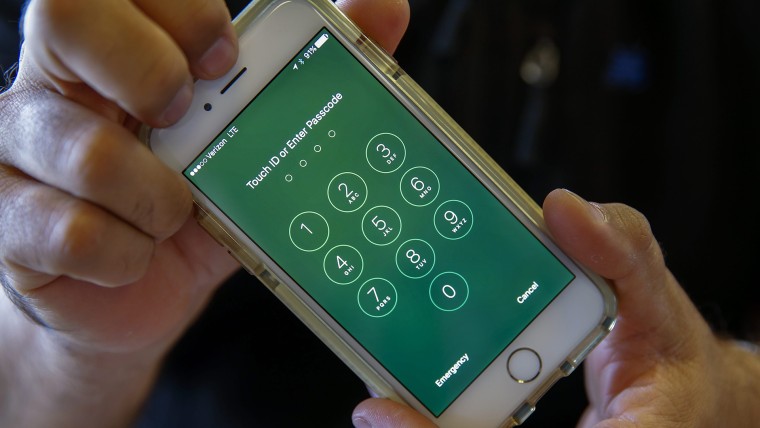Apple has filed its final planned legal salvo before the federal government and the world’s most valuable company are due to face off in a California court over unlocking a killer's phone on March 22.
"The Justice Department and FBI are seeking an order from this court that would force Apple to create exactly the kind of operating system that Congress has thus far refused to require," lawyers for Apple wrote in the brief filed Tuesday in the U.S. District Court for the Central District of California.
"They are asking this court to resolve a policy and political issue that is dividing various agencies of the executive branch as well as Congress,' Apple's lawyers argue.
Read More: Apple Fights Order to Unlock San Bernardino Shooter's iPhone
Apple and the federal government have battled in a series of legal briefs that began when a judge said on Feb. 16 that Apple had to provide "reasonable technical assistance" in helping agents access an iPhone 5C used by Syed Farook, one of the shooters in the San Bernardino massacre.
The company argues that the law the government has cited in its efforts to compel Apple’s assistance, the All Writs Act, does not apply in this case and that the government’s interpretation of the statute is overly broad.
"The Founders would be appalled," they said in the brief.
Apple has also argued that the specific help being requested by the government — that Apple build software that could be uploaded to the iPhone and that would bypass security features — would set a dangerous precedent, and that the tool itself could get into the hands of hackers, endangering millions of Apple devices.
"It has become crystal clear that this case is not about a 'modest' order and a 'single iPhone,'" Apple’s lawyers wrote in the brief filed on Tuesday.
Read More: DOJ Calls Apple Arguments 'Corrosive' in San Bernardino iPhone Case
The company also punched back at the idea, suggested by the government in earlier filings, that it was more interested in selling the security of its products than in helping investigators.
“This is a reckless and unfounded allegation. Since passcode-based encryption was first introduced in October 2014, Apple has produced 627 separate ads in the United States and approximately 1,793 ads worldwide,” Apple said in the brief.
“Not a single one advertised or promoted the ability of Apple’s software to block law enforcement requests for access to the contents of Apple devices.”

